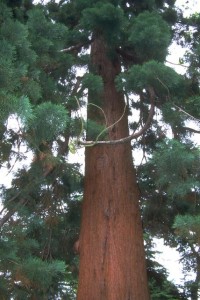I’ve been teaching creative writing classes recently to juniors and seniors in high school, and I’ve been dismayed by the inherent stress in their academic schedules, which seems to slow or prevent creative work. When pressed to come up with a writing assignment, they often freeze, no matter how desirous they are of succeeding in their assigned task.
teaching creative writing classes recently to juniors and seniors in high school, and I’ve been dismayed by the inherent stress in their academic schedules, which seems to slow or prevent creative work. When pressed to come up with a writing assignment, they often freeze, no matter how desirous they are of succeeding in their assigned task.
This is my advice to them: Stop writing, set down your pen, and look out the window. Or lie down on a couch and stare at the ceiling. I don’t mean watch a movie, or engage in a phone call or social media, I mean tune out and wait.
Research has shown that when your mind is at rest is often more active, and at the least as active, as your mind is when it is performing a strenuous task, such as completing a homework assignment.
In the past, neuroscientists assumed that when you’re resting, your neural activity subsides. They believed that when you’re tuned out, your brain behaves rather like a sleeping computer screen with a screen saver dancing across it. But, more recently, by analyzing precise neuroimaging technologies, they have discovered that crucial and meaningful activity occurs in the brain when a person is sitting back and doing nothing at all.
Here’s an excerpt from Scientific American, March 2010: “It turns out that when your mind is at rest—when you are daydreaming quietly in a chair, say, or asleep in a bed or anesthetized for surgery—dispersed brain areas are chattering away to one another. And the energy consumed by this ever active messaging, known as the brain’s default mode, is about 20 times that used by the brain when it responds consciously to an outside stimulus. Indeed, most things we do consciously, be it sitting down to eat dinner or making a speech, mark a departure from the baseline activity of the brain default mode.
 “In the mid-1990s we noticed that certain brain regions experienced a decreased level of activity from the baseline resting state when subjects carried out some task. These areas—in particular, a section of the medial parietal cortex (a region near the middle of the brain involved with remembering personal events in one’s life, among other things) —registered this drop when other areas were engaged in carrying out a defined task such as reading aloud. Befuddled, we labeled the area showing the most depression MMPA, for ‘medial mystery parietal area.’”
“In the mid-1990s we noticed that certain brain regions experienced a decreased level of activity from the baseline resting state when subjects carried out some task. These areas—in particular, a section of the medial parietal cortex (a region near the middle of the brain involved with remembering personal events in one’s life, among other things) —registered this drop when other areas were engaged in carrying out a defined task such as reading aloud. Befuddled, we labeled the area showing the most depression MMPA, for ‘medial mystery parietal area.’”
These researchers decided to call this area the brain’s “dark energy,” referring to the unseen energy that astronomers declare is the mass of most of the universe.
I told my students about this correlation and ask them to set their timers and for half an hour give themselves up to the dark energy that we are barely beginning to understand. When their time is up, they can proceed with their homework assignment.
Almost without exception, these students agree that when they resume the actual activity of writing after this “rest,” their writing seems to flow through them, rather than be squeezed from them, as though they were a tube of toothpaste.
So, try it!
Daily Happinesses


